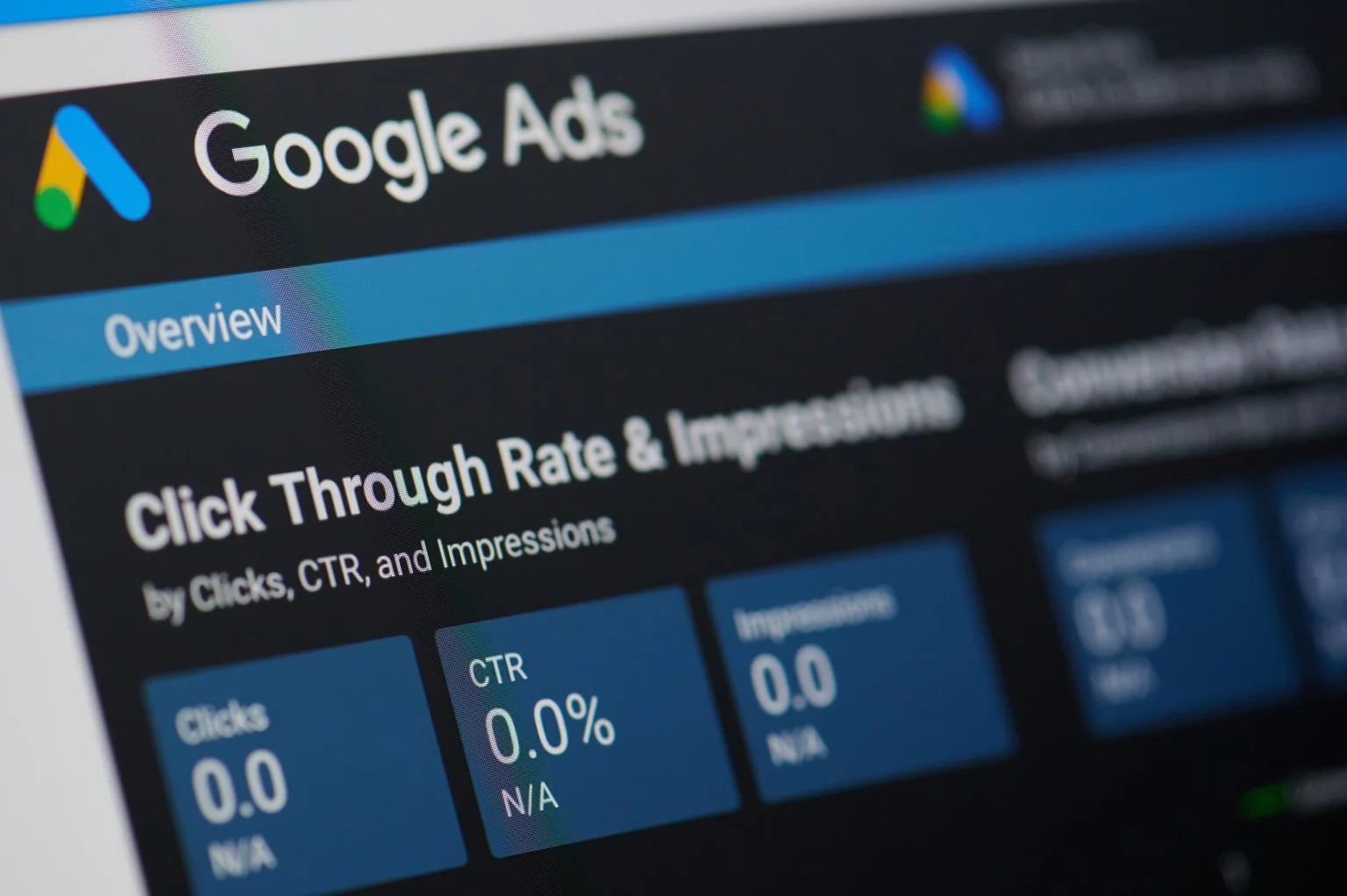
A successful advertising campaign requires a well-planned and carefully executed Google Ads budget. It is like hitting a home run in baseball: challenging but incredibly rewarding! How much should you invest in a Google Ads campaign? What’s the right amount of budget to be successful? Our google ads experts at fuze32 shared valuable insights on developing effective Google Ads budgets.
This article outlines the best strategies for mastering Google Ads budgeting. It provides detailed guidance on how to efficiently allocate your advertising budget to get the most out of your campaigns. Whether you are new to Google Ads or looking to refine your approach, the advice from our experts will help you make smart budget decisions, optimize your ad spend, and ultimately achieve better results from your advertising efforts.
Google Ads Budget Matters
Setting a budget for Google Ads is vital to avoid overspending and get the most out of your campaign. Businesses must understand their financial limits and advertising goals. This means knowing how many clicks or impressions they want as well as the cost associated with specific keywords. Setting a budget helps understand their financial capabilities and advertising goals.
Setting a budget helps businesses see how well their campaigns are doing and make changes if needed. This, in turn, leads to better strategic decisions, improved campaign performance, and ultimately, higher ROI.
Key Considerations
Setting an appropriate Google Ads budget requires considering various factors such as competition, market share, keyword costs, desired conversions, ROI, goals, industry benchmarks, target audience, market competitiveness, historical performance, and the overall marketing budget.
Specialists from fuze32 stress the importance of understanding competitor activity and keyword costs across different industries. They also highlight that it is necessary to define ROI and set clear objectives for Google Ads campaigns. Additionally, tracking past campaign performance and ensuring the marketing budget aligns with the overall business strategy is crucial. Considering seasonal trends and promotional events, and adjusting the budget according to market dynamics, can also significantly impact results.
Here is a breakdown of all the aspects you should consider:
- Competition and Market Share: Our experts explain that if competitors are heavily using Google Ads and dominate search results, they'll likely spend more to grab a larger share of the market. This means investing a larger budget to win auctions and get noticed, especially when competition is fierce for consumer attention.
- Keyword Costs: Costs per click vary across industries due to differing competition levels. For instance, highly competitive sectors like the legal industry will incur higher costs than less competitive ones like plumbing services.
- Desired Conversions and ROI: Define your objectives! Whether it's phone calls, form submissions, or sales, setting clear goals will enable you to allocate your budgets more effectively to achieve these outcomes.
- Goals and Industry Benchmarks: Business goals significantly influence budget needs. Understanding industry benchmarks, such as average cost per click or cost per acquisition, is vital for setting realistic expectations.
- Target Audience and Market Competitiveness: The size and competitiveness of the target market can greatly affect costs.
- Historical Performance and Overall Marketing Budget: Evaluating past campaign performance helps estimate future budget requirements. Additionally, it is crucial to ensure that the marketing budget aligns with the overall strategy and financial capabilities.
- Hidden Costs: Consider additional expenses, such as ad management fees or costs for design and copywriting, when budgeting.
By taking these factors into account, businesses can develop a more effective and strategic Google Ads budget.
Allocating Budgets Across Different Campaign Types
When deciding how to allocate a budget across various campaign types—such as search ads, display ads, and video ads— experts recommend a comprehensive approach. "We must reach the users wherever they are," they said in one voice. This means using multiple platforms to engage potential customers through search queries, banner ads, and video content.
However, they acknowledge that budget constraints can impact this strategy: "Some clients don't have enough budget for all types of ads. Ideally, we would use all these platforms to reach our target audience, but it depends on the client's budget. In such cases, we have to prioritize and make strategic decisions about which platforms will give us the best return on investment based on the client's specific goals and available resources."
Don't Feed the Click Monster: Avoiding Pitfalls
To get the most out of their Google Ads budgets, businesses need to avoid a few common mistakes. These include:
- Ignoring historical data
- Not setting clear goals
- Overlooking hidden costs
- Failing to monitor performance
- Underestimating competition
- Bidding on the wrong keywords
If you make these common mistakes, your campaign will likely suffer. Ignoring historical data can lead to poor decision-making. Not setting clear goals means you won't know if you're succeeding. Overlooking hidden costs can blow your budget. Failing to monitor performance keeps you in the dark about what's working. Underestimating competition can leave you behind. Bidding on the wrong keywords wastes money and misses your target audience.
Our experts recommend using tools like Google Forecast and Google Analytics to track performance and make data-driven decisions. Regularly review and adjust your budget, use negative keywords to avoid waste, and analyze competitor strategies and market changes to stay on top.
Budget Like a Pro: Tips from Experts
A professional approach to budgeting for Google Ads involves continuous learning and refinement. It requires a deep dive into business goals, target audience, competition, industry benchmarks, and performance data.
Here are the Tips from our experts for optimizing Google Ads Budget:
- Use forecasting tools and ensure keyword alignment with website content: The first step towards optimizing your ad spend is ensuring that the targeted keywords align with your website content and business goals. Forecasting tools can assist in understanding the potential traffic and costs associated with specific keywords.
- Develop well-defined strategies: Have a clear plan for scaling your campaigns based on performance data and market dynamics. This can help maximize ROI and minimize budget wastage.
- Focus on relevant keywords and track key performance indicators (KPIs): Determine the most relevant keywords for your business, track performance metrics like click-through rates and conversion rates, and adjust accordingly.
- Understand the relationship between budget and performance metrics like CTR, conversion rate, and ROAS (Return on Advertising Spend): Increasing the budget does not always equate to better performance. Instead, businesses need to focus on optimizing their campaigns for higher click-through rates, conversion rates, and return on ad spend.
- Design engaging and effective ads using A/B testing: If the budget allows you, experiment with different ad variations and A/B testing. It can help improve ad performance, leading to better results ROI.
- Adapt to seasonality and external factors: Seasonality and external factors heavily influence Google Ads budgeting. For example, pest control businesses should increase budgets in spring when termite problems peak. Staying informed about industry trends helps allocate budgets effectively during peak seasons.
- Utilize negative keywords: Identify negative keywords to prevent your ads from appearing in irrelevant and costly searches. For example, someone is searching for foster care and adoption services in Central Missouri because they want to adopt a child, but their search term ends up being "puppy adoption near me" due to the shared adoption terminology. Ensuring clear targeting is essential to avoid mismatches.
- Regularly review and adjust the budget based on performance metrics: Constantly monitoring campaign performance and adjusting the budget accordingly is crucial for a successful Google Ads strategy.
- Include hidden costs: Make sure to include all associated costs, such as ad management and design fees, in the budget to avoid any unexpected expenses.
- Analyze competitor strategies and market changes to stay ahead of the curve: Keep a close eye on competitor strategies and market changes to ensure your budget remains competitive and effective.
Mastering Google Ads budget management is crucial for businesses to optimize ROI and reach their target audience. This involves setting precise budget boundaries, considering factors like competition and keyword costs, and avoiding common pitfalls such as bidding on the wrong keywords or ignoring historical data. Regular reviews and adjustments using tools like Google Forecast and Analytics are essential. Effective budgeting also requires understanding bidding strategies, tracking KPIs, and making data-driven decisions. Ultimately, continuous refinement and adaptation are key to long-term success and maximizing ROI.
We hope you enjoyed these tips and find them useful for your business!



.webp)






















































